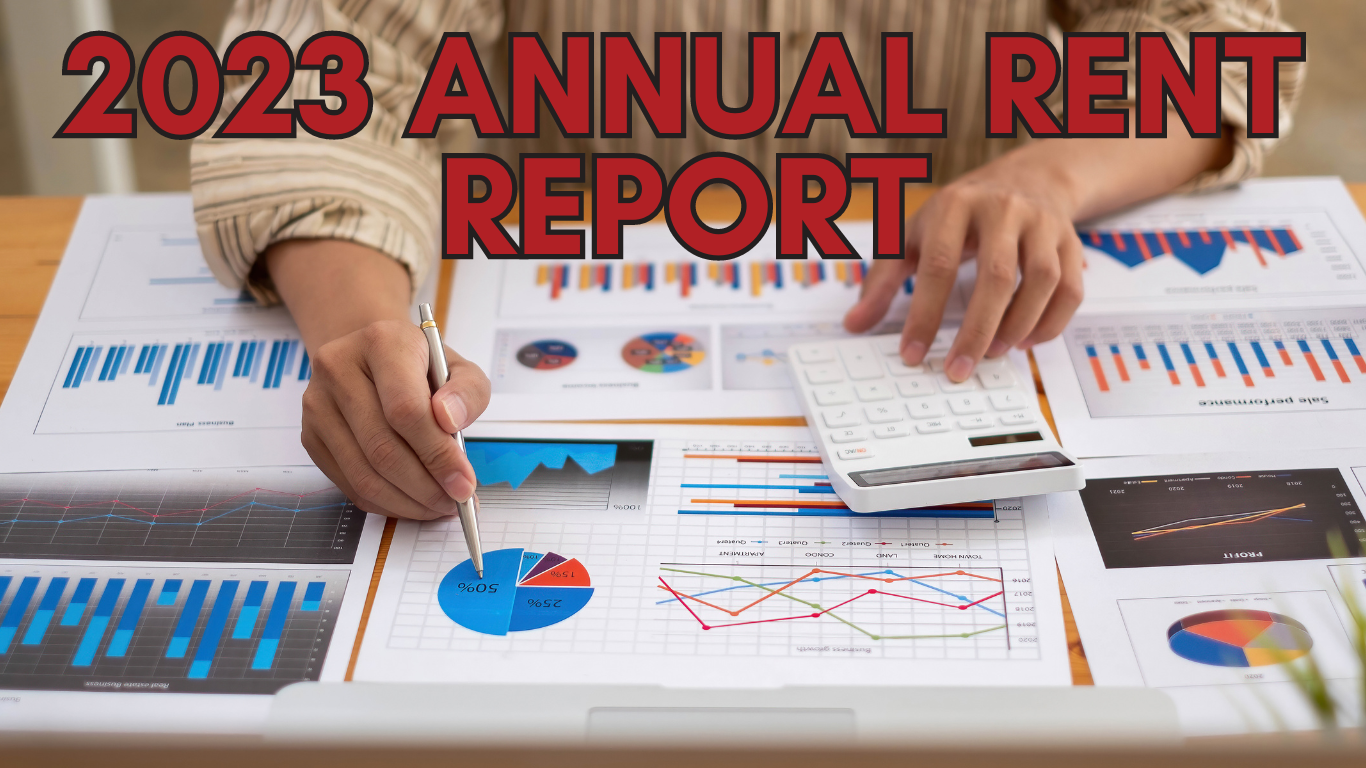Renter Nation Rising: Americans Increasingly Reject Homeownership as Rents Dip
The Annual Rent Report is Out from Zumper.com
The 2023 Rental Market: Lower Prices Ahead as Attitudes Shift
The rental market is entering a period of transformation in 2023 and 2024, according to Zumper’s 2023 Annual Rent Report. Several major trends are colliding: rising supply of new rental units, slowing migration to popular areas, economic uncertainty weighing on consumer confidence, and - most notably - a seismic shift in attitudes toward homeownership. Renters now feel less pressure to buy, and see renting as a viable long-term option.
National rent prices are dipping year-over-year for the first time since the early pandemic. The national median 1-bedroom rent has fallen 0.1% from December 2022 to $1,496, while the median 2-bedroom rose just 1.4% to $1,847. An unprecedented 55 of the 100 cities in Zumper’s index saw rents decrease versus last year.
What’s behind the cool down? Sky-high mortgage rates have been a deterrent, but the attitudinal shift goes deeper. Over half of renters believe “the new American dream is being untethered to home ownership,” Zumper found. Nearly 40% never plan to buy at all. Buying is now 52% more expensive than renting.
Younger Americans especially are avoiding home buying. For instance, 22% of Gen Z survey respondents rented an apartment sight unseen. Virtual tools will only become more important in attracting these renters.
The Flood of New Supply
Developers have been on a building bonanza, especially across the Sun Belt. Cities like Austin, Dallas, Phoenix, Orlando, and Miami have thousands of new luxury units hitting the market - just as migrations to those areas moderate.
Occupancy rates are dropping rapidly as landlords scramble to fill the shiny new buildings. Concessions like a free month’s rent have risen 17% nationally per Zumper. Rents will follow: Seattle rents already peaked over summer and fell 4% by year’s end; other cities will surely follow.
Renters relocating to the Sun Belt should find landlords eager to make deals as supply outpaces demand. The most leverage will come in 2023’s first half before markets settle.
Steadier Midwest and Coastal Markets
Trends differ greatly across geographies. In perennial favorites like New York and revived San Francisco, rents rose double-digits again with limited new supply. Yet both are well below peaks hit before the pandemic disrupted markets.
Midwestern cities have been a picture of stability, attracting residents with affordability and lifestyle. Minneapolis and Columbus rents keep notching 3%+ annual gains. Their moderate building means conditions won’t likely overheat.
How National Trends Compare to New Jersey
Rent Trends: New Jersey aligns with the national trend of stabilizing rents. While not significantly decreasing, the statewide median one-bedroom rent is closer to $2,300-$2,500, slightly lower than the December 2022 figures and indicating less pressure on prices.
Renter Attitudes: While specific surveys for New Jersey attitudes are absent in the article, the state historically has a high homeownership rate, suggesting a slower shift compared to areas experiencing significant market changes.
New Supply: The construction boom isn't as pronounced in New Jersey as in Sun Belt cities, but there is an increase in new developments in certain areas, particularly northern New Jersey near New York City. This could eventually impact occupancy and rental pricing in those areas.
Regional Differences: Similar to the national picture, different areas within New Jersey show diverse trends. Northern NJ cities like Jersey City and Hoboken see higher demand and potentially rising rents due to proximity to NYC, while some southern towns might experience slight cooling if mirroring Sun Belt trends.
What’s Ahead in 2024
Caution will rule in 2024 as economic uncertainty continues, predicts Zumper. Consumers hesitant about major expenses will remain renters. Occupancy rates will hover around 95% with substantial churn beneath the surface: droves opting out of home buying keep overall demand steady.
Even if mortgage rates and inflation ease in late 2024, attitudes are transformed, says Zumper CEO Anthemos Georgiades: “What we’re seeing is a fundamental shift in how Americans view the entire real estate market.”
With leverage on their side at last, renters can likely negotiate concessions from landlords well into 2024. New buildings will cut rents if units sit vacant too long. Tech tools for leasing, showings, and payments will become more vital than ever.
The bottom line is that after years of runaway rent hikes, the rental market has downshifted hard. For now renting has the upper hand over buying across large swaths of America. Values remain attractive and negotiating leverage strong for would-be renters entering 2023. Just choose your city wisely based on local supply trends.
